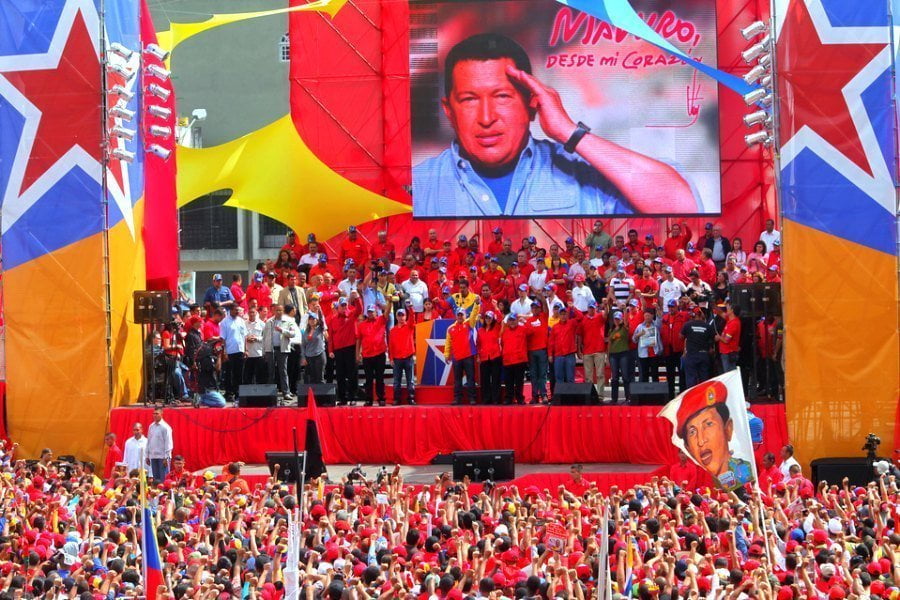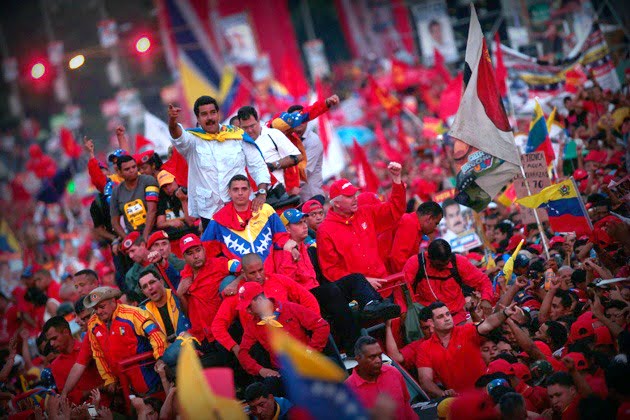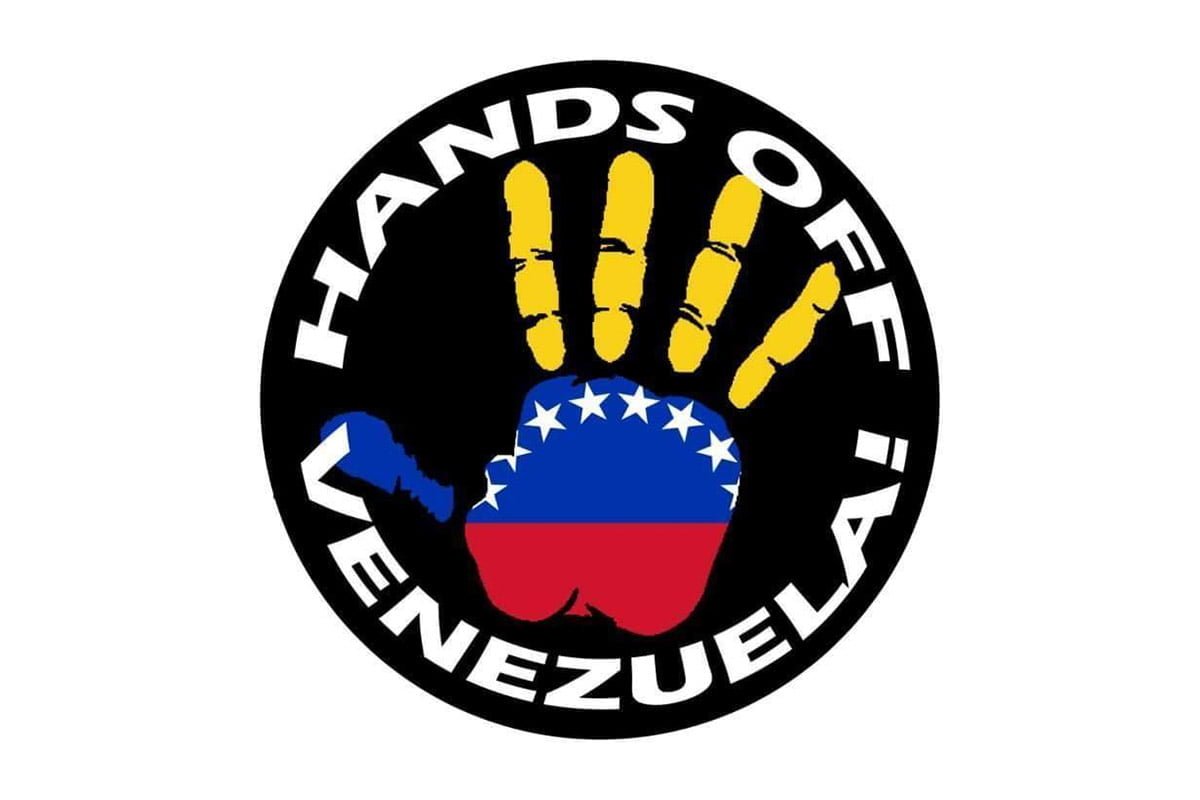The Bolivarian revolution in Venezuela is facing one of its most serious crisis since president Chavez was elected in 1998, with over forty days of almost continuous violent protests by the right-wing opposition. The aim is clear: the overthrow of the government by any means necessary. The revolutionary masses must fight back with socialist measures.
The Bolivarian revolution in Venezuela is facing one of its most serious crisis since president Chavez was elected in 1998. The government has been subjected to over forty days of almost continuous violent protests by the right-wing opposition, combined with provocative statements from Washington and right wing Latin American governments. The aim is clear: the overthrow of the government by any means necessary.
One of the main leaders of the opposition, María Corina Machado, freely admitted this:
“…there is a growing danger that we miss the essential point. The aim is not to hold elections within the framework of Maduro’s criminal regime. The aim is to put an end to the regime… The first step is to depose the regime.”
Media distortions
The world’s media have, once again, distorted the real situation on the ground in Venezuela. The picture they have painted is one of an authoritarian regime with no support using repression to stay in power against large numbers of peaceful protesters. The reality is more complicated.
Opposition protests, which have attracted large numbers, have also been extremely violent, leading to over 40 people being killed, many of them by gunfire coming from the opposition protesters’ lines.
While the popularity of the government is at a low ebb, there is still a hard core of working class and poor people who support the Bolivarian revolution and came out en masse on April 19th and again on May Day.
On both occasions, hundreds of thousands of Bolivarian revolution supporters marched from three different gathering points to Bolivar Avenue which they filed from end to end.
In Venezuela we see a conflict between different state institutions – the opposition dominated National Assembly versus the Bolivarian presidency – which reflect different class interests. The opposition, based mainly on the middle and upper class layers of society, wants to remove the current government and take power, encouraged by their December 2015 electoral success in the National Assembly elections. Maduro’s government, whose support comes mainly from the working class and the poor, wants to remain in power.
The opposition has been unable, so far, to go beyond their base of support in the middle and upper class areas and draw the working class and poor neighbourhoods into their protests. In fact chavismo still counts on a core of support which can be mobilised, particularly when faced with the whip of counter-revolution and foreign intervention in the form of the extremely provocative statements and actions of the Organisation of American States and Washington.
Economic contradictions
What is the reason for the fall in support for the Bolivarian government?
Venezuela is mired in a deep economic crisis. The steep fall in oil prices has revealed all the contradictions in the Venezuelan economy. Since the introduction of price controls and foreign exchange controls in 2003 (in order to prevent speculation and capital flight), the private sector has been rebelling against them. The ruling class has embarked on an investment strike and has found numerous ways to circumvent the foreign exchange controls, which have now turned into their opposite.
While oil prices were high, the government was able to use oil income to pay for massive social programmes as well as importing food, which then it sold at subsidised prices. This, for a while, created the illusion that it was possible to sustain wide-ranging social policies without dealing with the question of the ownership of the means of production. Now that is no longer possible.
Foreign currency reserves have collapsed, reducing the ability of the government to subsidise food imports, leading to scarcity in a context in which the private sector refuses to produce goods to be sold at regulated prices. Meanwhile, the government has prioritised foreign debt payments, which it has fulfilled on time. In order to maintain public spending, the government is running a massive budget deficit, amounting to 15% of GDP, which it funds by printing money. The combination of these factors has led to a massive devaluation of the currency in the black market combined with hyperinflation and a scarcity of basic products, particularly food and medicines.
For the last three years the Maduro government has followed a policy of defending itself from the opposition on the political front, whilst making all sorts of concessions to the capitalists on the economic front. Just before the current wave of protests, Maduro presided over the Expo Venezuela 2017, stressing that his government was not communist, that he was in favour of private property and then proceeded to hand out soft loans in Bolivars and dollars to foreign and national companies.
The government has also all but lifted price controls, replacing them with targeted delivery of subsidised food directly to communities (under the name of CLAPS) and has opened up a large area of the country to foreign mining multinationals through the Arco Minero project.
The block of bureaucracy
However, the fall in support for the Bolivarian revolution goes beyond purely economic reasons. The masses are of course deeply affected by the rapidly eroding purchasing power of wages, scarcity of goods, etc. But what they really resent is the fact that the government doesn’t seem to have any strategy to solve these problems. While it talks about an economic war waged by the oligarchy against the revolution, at the same time they sit down for talks with the capitalists and makes concessions to them. While it talks of socialism, the revolutionary initiative of the workers and the revolutionary communities is curtailed, asphyxiated or openly blocked by government bureaucrats in plush air-conditioned offices driving around in luxury pick-up trucks and four-wheel drives.
Bureaucracy, corruption and the blocking of rank and file participation is what has led to disillusionment, scepticism and even cynicism amongst layers which previously were supporters of the revolutionary movement. Though it is difficult to gauge, the Venezuelan population is now probably split three ways: a third which still supports the Bolivarian revolution; a third which supports the right wing opposition; and, finally, a third which opposes the government but is also deeply wary of the opposition leaders.
It is in this context that Maduro announced the convening of a Constituent Assembly, during the May Day march rally. The proposal is a leap into the unknown. Half the deputies in the assembly will be elected in normal territorial constituencies and the other half will be elected in sector-based constituencies: workers, women, youth, the disabled, indigenous peoples, etc.
Maduro described the Assembly as being a “workers’ and communes Assembly”. We must warn that in reality, it is unlikely that this proposal will really improve the balance of forces for the Bolivarian revolution. Many are deeply sceptical of the ability of the current leadership of the Bolivarian movement to really commit to rank and file participation.
Also, there is no indication that this announcement signals a shift to the left in the government’s economic policy. In his speech at the May Day rally, Maduro talked of “a change in economic paradigm” and of “moving towards a different, post-oil economic model”, which will “respect all existing property forms”, but did not even mention the word socialism.
Oppose capitalism and imperialism! Fight for socialism!
 In these circumstances, Maduro’s announcement will have the effect of giving more arguments to the opposition (as if they needed any), without addressing any of the real problems which have reduced support for the ruling party.
In these circumstances, Maduro’s announcement will have the effect of giving more arguments to the opposition (as if they needed any), without addressing any of the real problems which have reduced support for the ruling party.
If the opposition were to achieve its aim of overthrowing the government it would be an absolute disaster for the working class and the poor. In opinion articles in opposition papers they have already explained what their programme would be: to privatise state owned companies, to reduce the fiscal deficit by implementing massive cuts in social spending (particularly on education and health), to sack hundreds of thousands of public sector workers, to liberalise prices, to get free access to dollars from oil revenue, to abolish labour and trade union rights (particularly the ban on layoffs), etc. On top of this, they would make the workers and revolutionary masses pay very dearly for having dared to challenge their power for so long.
We fundamentally oppose the current offensive of the capitalist class and imperialism. But we must say openly that we do not support the policies of the government, because instead of solving the fundamental problems affecting workers and the poor, they aggravate them and are the surest route towards a defeat of the Bolivarian movement, be it through elections or a violent overthrow.
The conquests of the revolution are still many and wide-ranging, for instance the Mision Vivienda, the government’s housing program, which has just completed the delivery of 1.6 million housing units to families in need. The only way to defend these is to complete the revolution. That is, to expropriate the capitalist class (which is waging the current attempts to overthrow the government), to dismantle the capitalist state and replace it with a genuine workers’ democracy. Only these kinds of measures would be able to enlarge again the social basis of support for the Bolivarian movement.
The task at hand is to oppose with all forces the onslaught of reaction and imperialism by revolutionary means, while conducting a serious campaign of political clarification amongst the revolutionary vanguard as to what are the causes of the current crisis and the only way forward: socialism!






